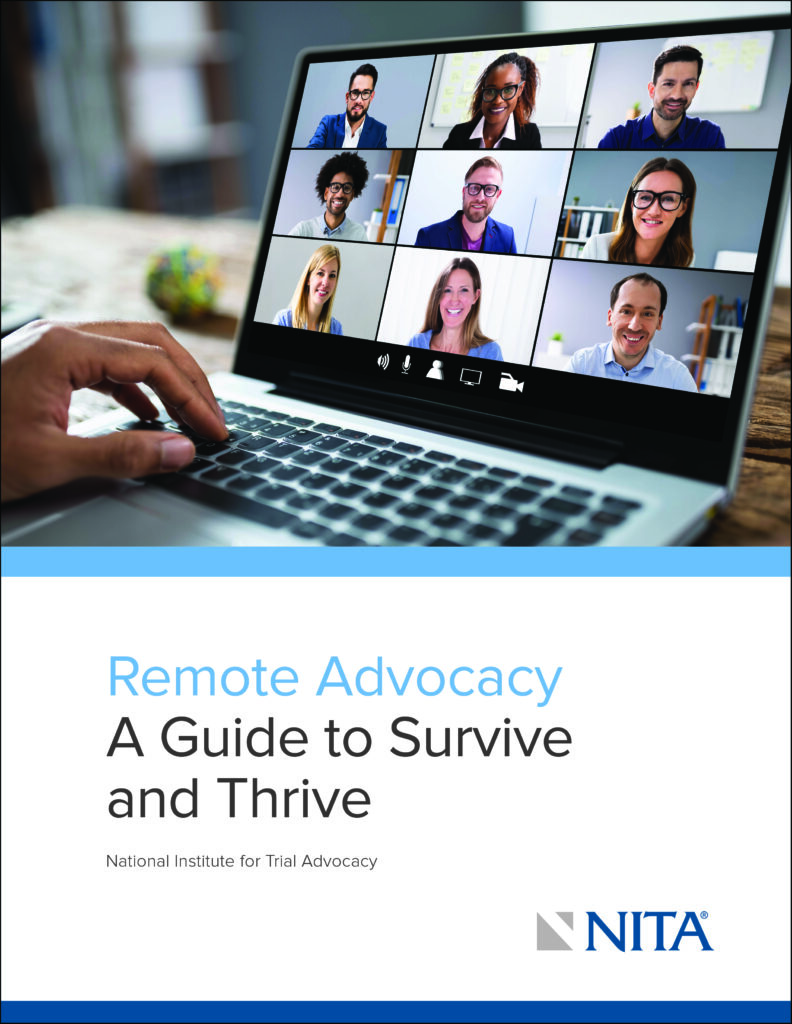with Judge Amy Hanley and D.C. civil litigator Reuben Guttman to talk about how to get it right in video and telephonic hearings.
In Episode 8 of the podcast, we are joined by Kansas District Court Judge Amy Hanley and D.C. civil litigator Reuben Guttman to talk about how to get it right in video and telephonic hearings. The disruptions caused by the covid pandemic have suddenly moved the courtroom into your dining room, and our guests are sharing their best do’s and don’ts from their respective positions on and before the bench. The Honorable Amy Hanley is based in Lawrence, Kansas, and presides over a civil, domestic, and criminal docket for the Seventh Judicial District of Douglas County. In his class action and complex civil litigation practice, Reuben Guttman has become one of the most prominent whistleblower lawyers in the world. Topics6:04 Constitutional and statutory constraints9:12 Preparing your client 11:20 Judges’ expectations13:40 Putting clients at ease15:08 Courtroom transition to online 16:51 Views from the bench18:33 Creating formality23:17 Equal time 29:25 Exhibits and judge preferences31:43 Presenting exhibits33:45 Making a court record35:25 Recording the hearing36:44 Communicating with client40:25 Witness sequestration41:42 Confidentiality issues43:26 Public Zoom hearings46:00 Closing advice48:20 Technology’s impact on the law49:07 Signature “softball”Quotes“If your judge doesn’t have the protocol [for remote hearings], don’t be afraid to ask for it. A little secret that I’ll let you in on is that judges love it when counsel does that work for us. You might be better suited to draft and propose a protocol due to your familiarity with the technology or because you know the witnesses and exhibits that need to be used. And we love it when you do that work for us ahead of time and send in a draft that we can use as a starting point.” Judge Amy Hanley“It’s important to get [clients] to appreciate what it’s going to look like, what they’re going to look like, in the courtroom and to have them to appreciate that maybe the judge might actually pose a question to them directly, to rehearse some of that so they’re not surprised. If you’re sitting next to somebody, it’s a lot easier to tap them and say, ‘It’s ok, don’t worry about it. Answer the question,’ but remotely, I mean, there’s an intuitive sense of fear: ‘Oh, my God, I’m not prepared for this.’ So, the idea is that you want to make sure whether you’re putting your client on from prison or jail, or whether you’re putting your client on from a hospital room, you want to make sure that at least they understand what the possibilities are, in preparing them. I call it inoculation, inoculation against the possibilities that may give them anxiety.” Reuben Guttman
Learn more here.




